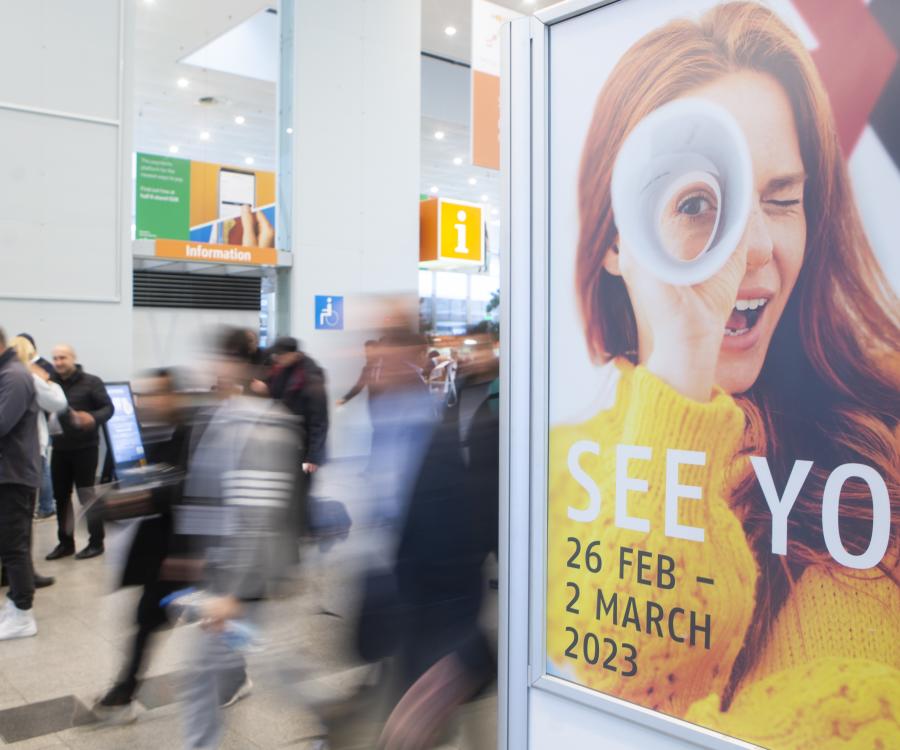
In our interview, Dr. Wolfram, Managing Director MGI METRO GROUP Information Technology, talks about experiences made so far and the importance of international standards for a nationwide application of RFID technology.
Just like the barcode or chip-card systems, a RFID system is an automatic identification system. In which areas and for which products do you use RFID? And are there risks in using RFID systems?
METRO GROUP uses RFID within its logistics with pallets since 2004. Currently approximately 400 facilities in Germany and France are equipped with RFID technology for incoming and outgoing goods of the Metro Cash & Carry and Real stores. In addition, within the scope of a pilot project on inventory availability and quality control for fresh meats, RFID is being tested at the real,- Future Store in Tönisvorst.
What advantage does RFID technology offer compared to the traditional barcode system? Are both systems interchangeable?
The considerable increase in transparency and efficiency within value added logistics are crucial advantages in favor of RFID technology. An intelligent infrastructure is required for this, which we have successively built up at METRO GROUP to successfully use RFID in the company.
What does the service life of chips look like? Can they be destroyed by outside influences?
The requirements for transponder and labels are very different depending on the field of application. Carrier companies use very robust transponders for reusable transport packaging and containers, which are exposed to the elements for years and have stood the test of time. Within METRO GROUP, we use transponders for logistics that are embedded in paper labels including antenna and affixed from the outside onto the pallet. These labels are no more sensitive than a barcode and survive transportation without any difficulty.
Can application areas be further expanded and what additional benefit do you see for the retailer?
Modern technologies like RFID can make a significant contribution to improve quality assurance, if they are widely used in the supply chains of the food industry. RFID makes it possible to label products with a distinct serial number, so individual products can be differentiated from each other. The product’s path within the process chain can thus be easily retraced and product recalls done considerably faster and more precisely.
Is the range of radio chips limited? If so, how broad is the range and can it be increased if necessary?
Passive RFID transponders generally have a read range of a few centimeters up to a few short meters, depending on the frequency band and used technology. In our incoming goods processes with RFID, the focus is on a compact reach of approximately two meters to only read the single pallet that is being drawn through the RFID portal at the time.
Consumer advocacy groups often criticize the use of radio chips as being non-transparent. How does the customer get informed about their use?
The international standards organization EPCglobal, which METRO GROUP is also a part of, has adopted regulations for the use of RFID with the customer in 2005. These far exceed the legal requirements. We voluntarily committed ourselves to comprehensively inform our customers where and why we use RFID. If requested, after the purchase customers have the option to permanently disable the transponders or to have them removed. In addition, consumers are educated on the mode of operation and advantages of this technology. This takes place with posters and flyers as well as on our website.
In 2004, Metro Group founded the RFID Innovation Center. What is your conclusion after seven years? What has proven to be feasible for retail and are there applications you directly adopted into the Future Store?
The Innovation Center serves as a research and development platform for METRO GROUP and partners of the Future Store Initiative. Solutions are designed in this environment that are used by METRO GROUP.
Metro promises its customer ”the Self-Service Store of the Future”. What role does RFID technology play in this?
At the real,- Future Store, RFID is used for incoming goods on pallets and for optimization of inventory availability and quality control for self-service fresh meats within the scope of a pilot project. With the help of RFID, we are able to increase transparency and efficiency within the value-added chain for use in logistics. We were able to considerably reduce write-offs in the fresh meats area by using RFID and at the same time were able to increase product availability for our customers.
Which conditions need to be created to achieve nationwide use in retail?
It is not just retail, but also the consumer goods and packing industries that need to take action. One decisive prerequisite for a nationwide use of RFID technology is international use and development of uniform standards. The electronic product code (EPC) already provides a global mutually exclusive set of digits, which helps in clearly identifying every product. Since other international commercial enterprises increasingly rely on the use of RFID to create a more efficient value-added chain and improve the inventory availability for their customers, in the long run we can probably anticipate a nationwide use. The cost of an individual transponder in relation to the product cost and the product-specific use of RFID along the process chain also play an important role.
Interview by Ingrid Spicker, First publication Intermopro.de










